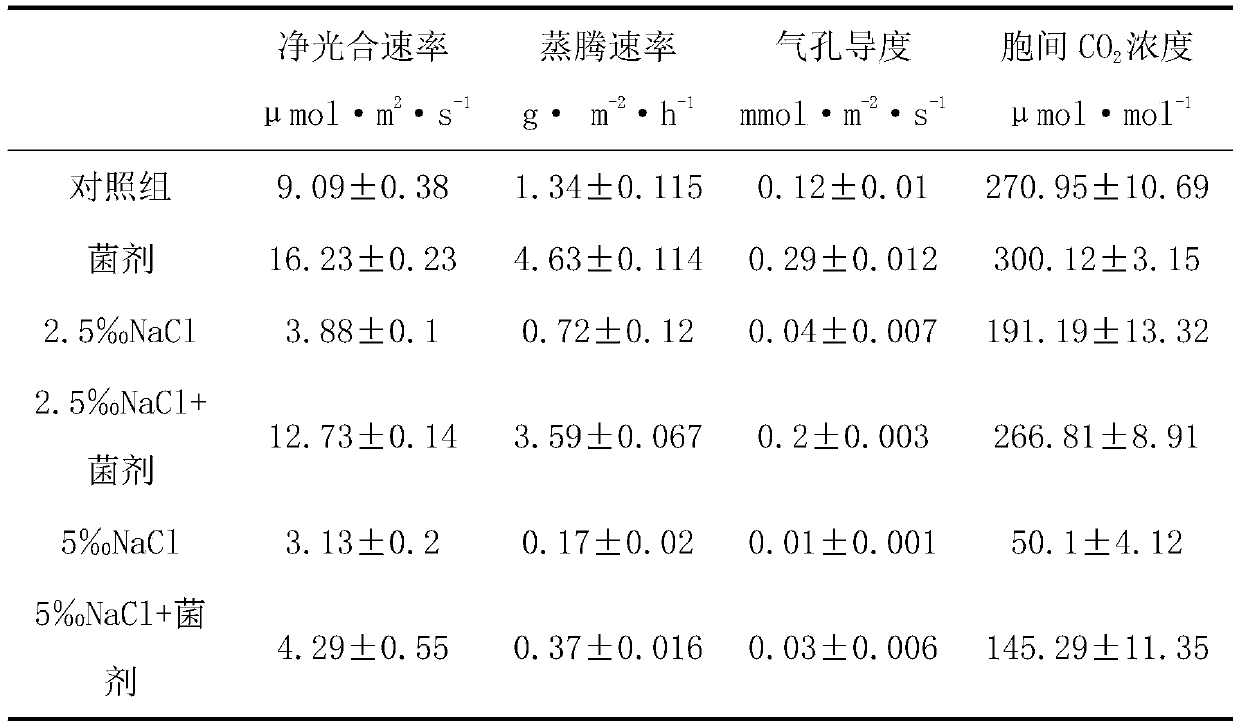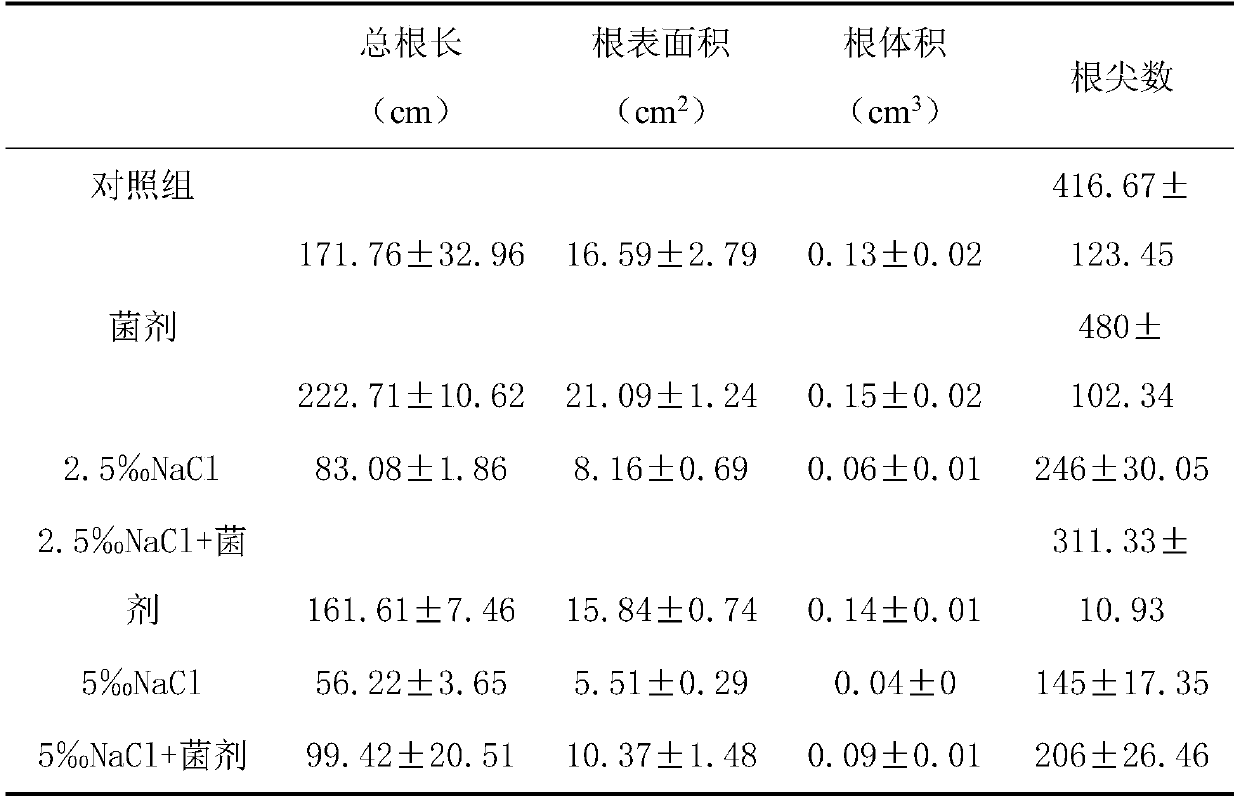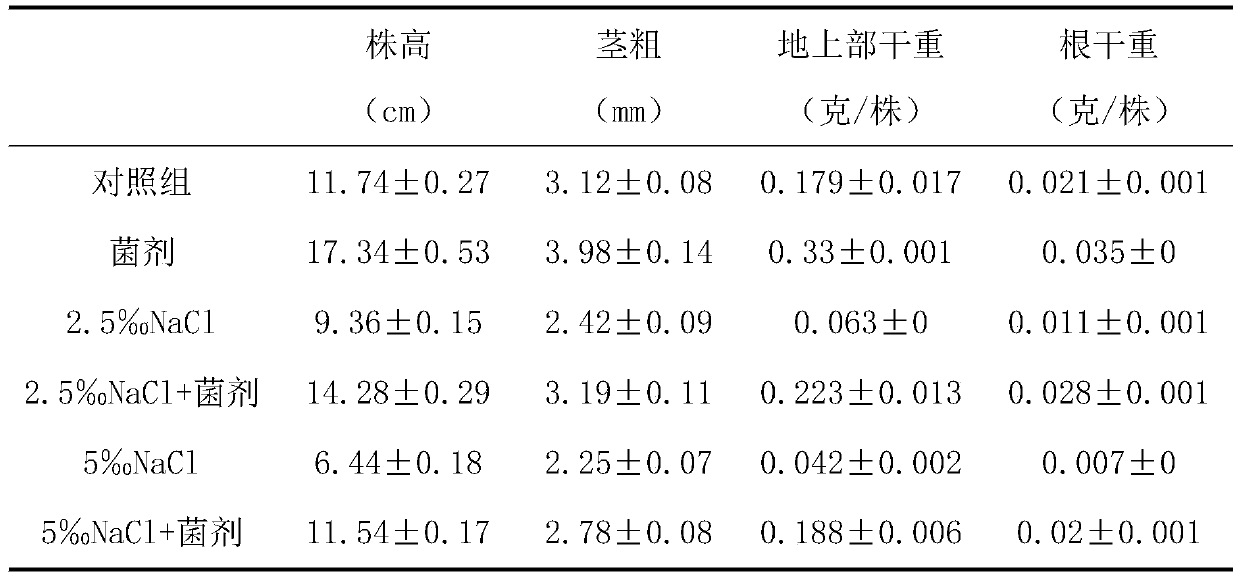Salt-tolerant growth-promoting bacterium strain D5-2 and application thereof
A technology of promoting growth bacteria and strains, applied in the field of microorganisms, to achieve the effects of reducing use, improving salt tolerance, and increasing plant type
- Summary
- Abstract
- Description
- Claims
- Application Information
AI Technical Summary
Problems solved by technology
Method used
Image
Examples
Embodiment 1
[0015] Example 1 Isolation, screening and identification of salt-tolerant growth-promoting bacterial strain D5-2
[0016] 1. Isolation and screening of salt-tolerant growth-promoting bacteria strain D5-2:
[0017] From the Zhangjiagang greenhouse, the soil samples were collected from the rhizosphere soil of the pine cauliflower, and 2.0g of the rhizosphere soil samples of the pine cauliflower (with the plant root system) were weighed and placed in a conical flask with 100mL of double distilled water, sealed with a sealing film, and placed in a 200r Shake at a constant temperature of 30°C for 24 hours in a shaker / min to obtain a soil suspension. Take 1mL of soil suspension and transfer it to 100mL LB liquid medium containing 2% NaCl, incubate at a constant temperature of 30°C at 200r / min for 24 hours, and then transfer it again to 4% NaCl containing In the LB culture medium, repeat the above steps until the NaCl content in the LB culture medium reaches 6%. The resulting bacte...
Embodiment 2
[0027] Example 2 Salt-tolerant growth-promoting bacterial strain D5-2 to tomato salt-tolerant growth-promoting test
[0028] Preparation of bacterial agent containing salt-tolerant growth-promoting bacteria strain D5-2: inoculate D5-2 in LB liquid medium, culture at 180rpm, 30°C until OD600 is 1, then centrifuge the bacterial solution at 6000rpm for 10min, discard The supernatant was reinjected into an equal volume of dd water, shaken and resuspended, centrifuged at 6000rpm for 10 minutes, the supernatant was discarded, and repeated twice, and the bacterial agent was obtained after resuspension.
[0029] Experimental design: select plump tomato seeds of the same size and sterilize the surface with 5% NaClO solution for 10 minutes, rinse the seeds repeatedly with deionized water for several times, soak the seeds in deionized water for 24 hours, and then place them in a culture medium covered with moist gauze. Germinate on a dish at 27°C for 2 days. The seeds with the same bud ...
PUM
 Login to View More
Login to View More Abstract
Description
Claims
Application Information
 Login to View More
Login to View More - R&D
- Intellectual Property
- Life Sciences
- Materials
- Tech Scout
- Unparalleled Data Quality
- Higher Quality Content
- 60% Fewer Hallucinations
Browse by: Latest US Patents, China's latest patents, Technical Efficacy Thesaurus, Application Domain, Technology Topic, Popular Technical Reports.
© 2025 PatSnap. All rights reserved.Legal|Privacy policy|Modern Slavery Act Transparency Statement|Sitemap|About US| Contact US: help@patsnap.com



